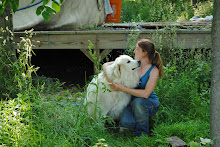Allow me a brief linguistic digression, if you will.
In my heretofore monolinguisity, I´ve always felt like a stereotypical American (and in a bad way). True, I´ve done my fair share of traveling, but always with handy phrase " do you speak English?" in the local idiom. Among other things, my Colombian adventure is an attempt to correct this shortcoming and finally achieve something akin to proficiency in a language other than Pig Latin. It has been hard for me to listen, and listen, and still not understand. I find myself frustrated by the inadequacy of my Spanish vocabulary to express my English thoughts. Pero, me encanta español. I like this language so much that I feel like Elizabeth Gilbert in Eat, Pray, Love--inclined to read my Spanish-to-English dictionary for the sheer joy of new words.
Medellin is an especially ideal place to learn Spanish, I believe, because of the similar enthusiasm that paisas seem to feel for their slang-laced paisa speak. Not a day goes by without my professor slipping some new morsal of paisa into our lesson, all of which I collect and chronicle and strive to incorporate in my speech. A disproportionately large amount of my paisa seems to have been spawned in Medellin´s shady narcotrafficking past, but I still love the words. "Be careful that you don´t dar papaya (literally, to give a papaya) walking around at night"; in other words, don´t unnecessarily expose yourself to danger. When you go out on the weekends you´ll most likely be found "levantamiento de codo" (raising your elbow--aka taking a drink). And I´ve been informed on more than one occasion that "el mundo es un pañuelo" (the world is a handkerchief) to explain why I keep running into people I know in the must unexpected places. Amusingly, everyone has a different explanation for this phrase.
But studying Spanish has afforded me more than just an opportunity to expand my vocabulary and send excited emails about cognates (whoa! "crepusculo" means twilight, and hey, in English, when you descibe something as "crepuscular" it means you do it in the evening. SOOO COOL!). My studies, brief as they are, have given me a whole new perspective on how we use words to communicate. I´ve noticed how certain words are a sort of key to a conversation, without which all the rest might as well be nonsense. The chasm of difference between signifier (the word) and signified (the thing, tangible or abstract, that the word references) has never been more apparent to me. Words on their own mean nothing; they are as ambiguous as the letters that form them. In many ways, words are social creatures, and as a student of Spanish I am learning their social norms. Ocassionally I´ll stop in mid-sentence and suddenly exclaim "I said that idea correctly without having to think about it!". My listeners are usually kind enough to congratulate me on my small victories.
At the same time, I am engaged in a process of meta-learning--thinking about thinking, learning about how I learn. This morning, I met with my conversation partner, Andrea, and we read to one another from children´s books to practice our accents. Towards the end of my story (about a frog with too-tight pants and a fondness for beer), I suddenly realized that the whole thing was written in rhyming verse. In my halting Spanish I had understood the story but missed the sense. Andrea turned back to the beginning and read a few verses for me so that I could hear the rhythm of the words. That´s what I´m looking for, really. Rhythms of speach, patterns in my mistakes as well as in verb conjugations. Details are important when learning a new language, absolutely. But just as salsa is more than just a series of steps, Spanish is an integrated amalgam of rhythm and patterns. I think I´m starting to feel the beat.




4 comments:
The best way to learn a language is to immerse yourself in it. You should learn well. Colombians are particularly gracious about helping you learn!
Another beautiful post! And Chiot Run is right; the fact that you're totally immersed in Latin culture will make the Spanish speaking come more naturally than if you were in the States, trying to learn. Man, this is making me want to brush up on my Italian! There is something so beautiful about lyrical languages like Spanish. (Sorry, German!)
For anyone missing mk, here's a shot to warm the heart.
http://anthonymasterson.blogspot.com/2008/11/mk-yeoman-farm-girl-serenbe-farms.html
Post a Comment